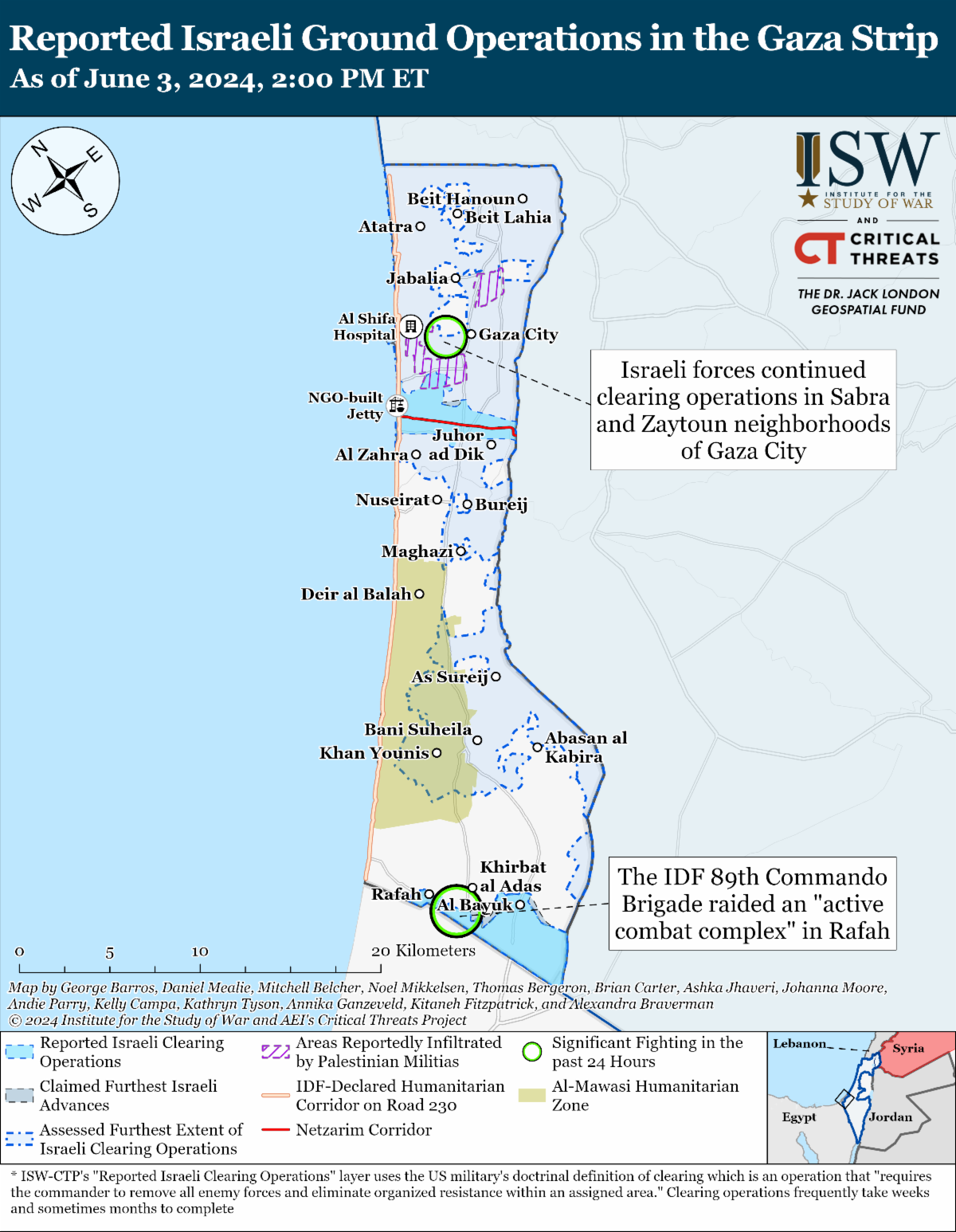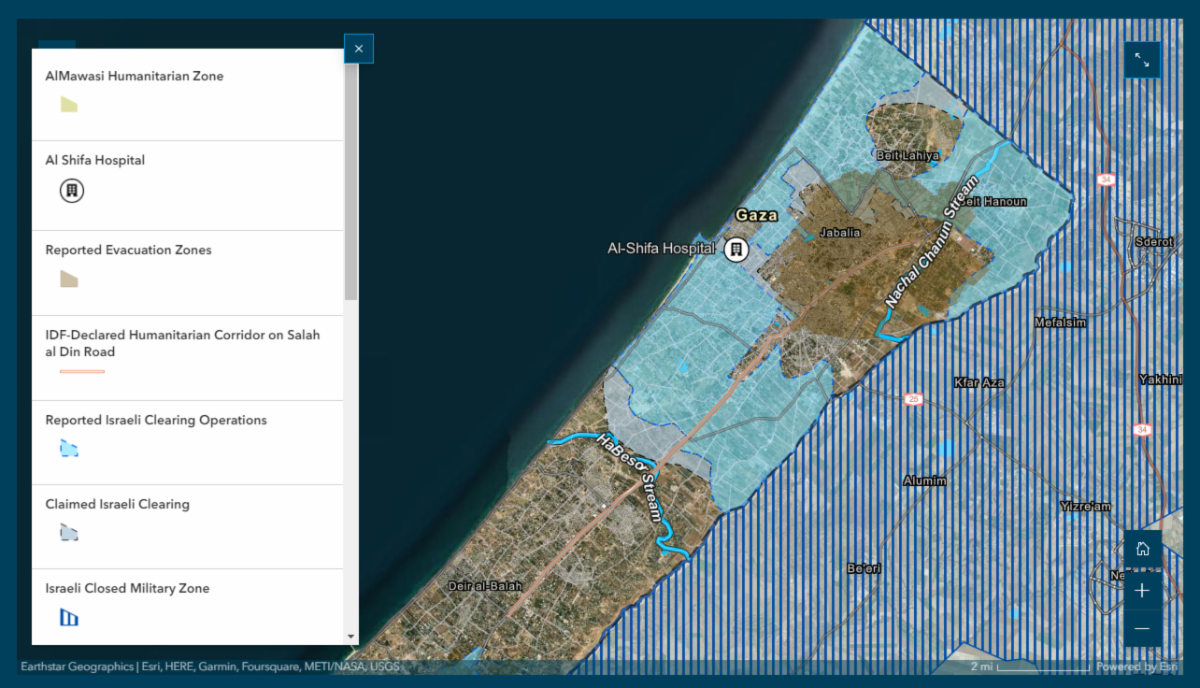Israeli Prime Minister Benjamin Netanyahu said on June 3 that Israel will not agree to a permanent ceasefire until Israel achieves its war objectives. US President Joe Biden outlined the latest Israeli ceasefire proposal and encouraged both Hamas and Israel to accept it during a speech on May 31. He said that the proposal includes an initial six-week ceasefire with a partial Israeli military withdrawal and the release of some hostages while Hamas and Israel negotiate a permanent end to hostilities. Netanyahu said on June 3 that Biden’s outline of the proposal was only “partial.” Israel has confirmed that it approves the proposal that Biden outlined but insisted that a permanent ceasefire is only possible once Israel achieves its war objectives. Two right-wing members of Netanyahu‘s coalition have threatened to dissolve the Israeli government if Netanyahu agrees to end the war. Netanyahu said that Israel is insisting that a second phase of the ceasefire can begin only after there is an agreement on the terms of the complete ceasefire. This would allow Israel to retain the right to resume fighting in the Gaza Strip as long as Israel views that the negotiations are futile. Netanyahu said during a closed-door parliamentary meeting that Israel could initiate the first phase of the proposal without an agreement on what follows.
Hamas official Suheil al Hindi told The Washington Post on June 3 that Hamas is still discussing the ceasefire proposal that Biden presented. Hamas told international mediators that it wants a detailed proposal that reflects the one Biden presented in his speech. Hamas officials told international mediators that the latest Israeli proposal described a period of “sustainable calm“ in ambiguous terms, suggesting that Hamas was not confident that the “sustainable calm“ would secure Hamas‘ key demand, a permanent ceasefire. Hamas stated on May 31 that it is willing to engage "positively and constructively" with the latest Israeli ceasefire proposal, so long as it meets Hamas’ maximalist demands. Qatar sent the Israeli proposal to Hamas on May 30. A senior US official mentioned that the proposal is "nearly identical" to one presented by Hamas three weeks prior before that proposal was unilaterally altered by Egyptian intelligence. Hamas has not issued an official response to the Israeli proposal at the time of writing.
Hamas may reject the agreement if the agreement fails to secure Hamas’ maximalist objectives, which include a permanent ceasefire. Hamas remains confident that it can survive Israeli military operations in the Gaza Strip, and it can therefore pursue its maximalist demands without major concessions. CTP-ISW has previously noted that Hamas’ confidence in its survival increased, and its ceasefire demands appear to have solidified as the IDF drew down its forces in the Gaza Strip beginning in late December 2023. Hamas leader in the Gaza Strip Yahya Sinwar expressed confidence in February 2024, stating that Hamas is "doing fine" amid Israeli clearing operations. Sinwar conveyed to Arab mediators in early May 2024 that he is in no hurry to end the war, as it is drawing international condemnation of Israel and reviving the Palestinian national cause.
Key Takeaways:
- Iranian Presidential Elections: Hardliners overwhelmingly dominate the candidate pool for the upcoming Iranian presidential election. Current Parliament Speaker and former IRGC Air Force commander Mohammad Bagher Ghalibaf and close Khamenei aide Vahid Haghanian both registered for the election between June 1 and 3.
- Ceasefire Negotiations: Israeli Prime Minister Benjamin Netanyahu said that Israel will not agree to a permanent ceasefire until Israel achieves its war objectives. Hamas may reject the agreement if the agreement fails to secure Hamas’ maximalist objectives, which include a permanent ceasefire.
- Post-War Gaza Strip: Israeli Defense Minister Yoav Gallant said on June 2 that Israel is assessing an alternative governing authority to Hamas in the Gaza Strip. Hamas will violently resist and undermine alternative governing authorities that do not include it.
- West Bank: Palestinian fighters continue to seek to attack Israeli towns from the West Bank.
- Northern Israel: An Israeli Army Radio correspondent reported on June 3 that the IDF faces challenges intercepting drones targeting northern Israel. Other military forces, including the US Army, have also encountered challenges combatting Iranian-made drones in the Middle East.
- Yemen: The Houthis likely launched a ballistic missile from the Red Sea targeting Israel on June 3. The IDF’s Arrow ballistic missile defense system intercepted the Houthi missile.
| 






 [ISW] 러시아 공세 캠페인 평가, 2024년 6월 2일
[ISW] 러시아 공세 캠페인 평가, 2024년 6월 2일